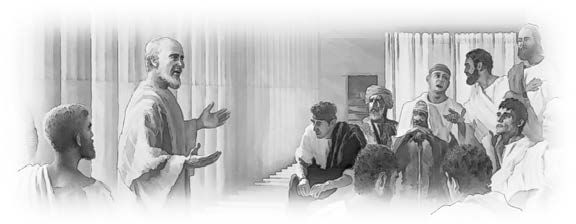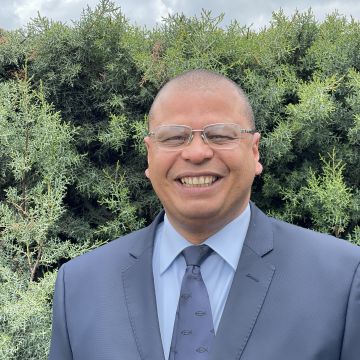Luis Paiva decided to open a fruit stand in Spain. But he moved forward with fear, sensing that God was calling him to serve elsewhere. He also worried that his new business might prevent him from giving his all to God.
Two short weeks after opening the fruit stand, everything seemed to fall apart. His business was failing. His partners were cheating him. He fell ill and no longer could walk. But Luis didn’t want to give up. He asked fellow Seventh-day Adventists for business advice. One of them, knowing that Luis had trained to be a pastor, reprimanded him. “You shouldn’t be engaged in worldly business but in the business of winning souls for the Lord,” he said.
For Luis, the rebuke was like hearing God’s voice. But he felt even more hopeless. How could he serve as a pastor without a church? Luis talked over the matter with his wife, and they decided to return to their native country, Venezuela. Perhaps he could recover his health there.
A short time later, Luis got a call from Gabriel Diaz, a leader of the Adventist Church in Spain. The church was looking for a missionary to work in Lugo, a city in northwestern Spain. Luis was delighted at the prospect of returning to full-time ministry, but he acknowledged that he had serious health and business problems. “I’m not even able to walk,” he said.
The church leader was not dissuaded, and the two men prayed together.
In two weeks, Luis regained his ability to walk, and he opened a house church in Lugo. On the first Sabbath, only two people, both church members, showed up to worship. But in just four months, 22 people were gathering in the house church every Sabbath. Among them were three newly baptized members and others preparing for baptism. In addition, Luis had opened a Bible study school and a school of evangelism to teach people how to win souls for God. He was making plans to plant an official church.
“We know that we have to win many souls in order for that to happen,” he says. “But I trust God, and I have confidence in Him that this will happen because we are using Christ’s method alone.”
“Christ’s method alone,” according to Ellen White, “will give true success in reaching the people. The Saviour mingled with men as one who desired their good. He showed His sympathy for them, ministered to their needs, and won their confidence. Then He bade them, ‘Follow Me’ ” (Ministry of Healing, p. 143).
As a pastor in Venezuela and later a missionary in Mexico, Luis never dreamed he would be serving God in Spain. “I’m here because of God’s grace,” he said.
Thank you for your Sabbath School mission offering that helps support missionaries around the world.


